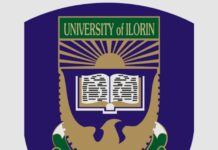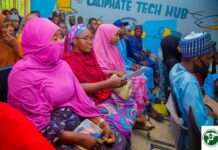By Chimezie Godfrey
The Minister of Education, Mallam Adamu Adamu has unveiled guidelines for schools and learning facilities reopening after the COVID-19 pandemic closures.
The Minister who disclosed the document containing the guidelines to Newsmen on Monday, noted that as a responsible government, it was essential to provide comprehensive guidelines for a safe and hitch-free reopening of schools and learning facilities.
“Now is the time to plan and address the eventual safe reopening of schools and learning facilities.
“It will be recalled that at the outbreak of the COVID-19 pandemic in Nigeria, schools and all learning facilities were closed in order to safeguard the health and general wellbeing of our children, youths, teachers, and educational personnel.
“As a responsible government, it is also our duty to provide comprehensive guidelines for a safe and hitch-free reopening of schools and learning facilities.
“We do so knowing that the health, safety, and security of learners, teachers, education personnel, and families are priorities.
“The Guidelines for Schools and Learning facilities reopening after COVID-19 pandemic closures outline key strategies for implementing safe, efficient, and equitable plans for school reopening and oper-
ations.
“The document focuses on attendance, social distancing, hygiene, cleaning, and non-pharmaceutical interventions for safe and healthy school activities and programs. Given that COVID-19 may be with us for a while, the guidelines also highlight the urgent need to maintain and improve upon distance-learning programs.
“Our aim is to identify and strengthen programs that will guarantee the recovery of learning gaps resulting from the pandemic,” he stated.
According to the Minister, the guidelines were drafted in close coordination with health, environmental, education, and school safety experts who were tasked with the responsibility of charting a pathway for safely reopening schools and learning facilities for quality teaching and learning.
He pointed out that the approach ensured that stakeholders provided regular feedback throughout the process.
Mallam Adamu expressed gratitude to the Presidential Taskforce on COVID-19, the Federal Ministry of Health, Nigeria Centre for Disease Control (NCDC), and the Education in Emergencies Working Group in Nigeria (EiEWGN) for their support and contribution in the development of the guidelines.
He further stressed that collaboration and partnerships are also a key focus of the document, and therefore thanked the various stakeholders who have pledged their support and assistance toward the implementation of the guidelines.
“It is important to recognize families, teachers, education providers, and learners who have stepped up to continue teaching and learning during this very difficult time.
“We must also note that the shift to remote and distant learning affected our most vulnerable and economically disadvantaged learners. The COVID-19 pandemic has thus created an opportunity to transform our approach to ensure equitable education for all learners.
“Planning for the safe reopening of schools and learning facilities means that we must continue to build capacity both in resources and human development to address the needs of all learner’s.
“The guidelines are a useful tool and resource for state governments, parents, and education providers as we plan for the safe reopening of schools and learning facilities.
“We know the scale of the challenge in addressing the deep rooted issues in the education sector. However, we remain determined and committed to responding and supporting learners, families, administrators, and education personnel during this difficult time,” he stressed.
In the same vein, the Minister of State for Education, Emeka Nwajiuba noted that the guideline is a strategy document developed to provide necessary support to stakeholders for the safe reopening of schools and learning facilities.
Nwajiuba disclosed that the development of the guidelines involved a series of meetings, consultations, and deliberations with relevant stakeholders on key areas of concern.
According to him, efforts were made to ensure that all inputs are considered from development partners, donors, CSOs, and professional bodies to address critical issues of health, safety, and quality education provision as schools gets ready to reopen.
“Essentially, the guidelines are intended to help education authorities and providers plan effectively for a safe, equitable, and prompt reopening of process.
‘It offers a wide range of strategies focused on the needs of learners, teachers, and educational personnel in all our schools.
“Specifically, the guidelines are for all those who have responsibility for ensuring that our schools and learning facilities provide quality education for learner’s.
“Boards of schools management, administrators, and teachers to enable them to use appropriate information to affirm good practice and have a clear focus on the specific areas for the reopening process.
“School communities, including learners and parents, to enable their fullest participation in the reopening process and continued safe operations,” Nwajiuba stated.
He said that the Ministry and its relevant parastatals, development partners, donoros and CSOs are available to support in the area of various emergencies and hazards.
Nwajiuba advised that each state and the Federal Capital Territory Administration (FCTA) should set a coordination team to oversee the domestication and implementation of the contents of the guidelines.




